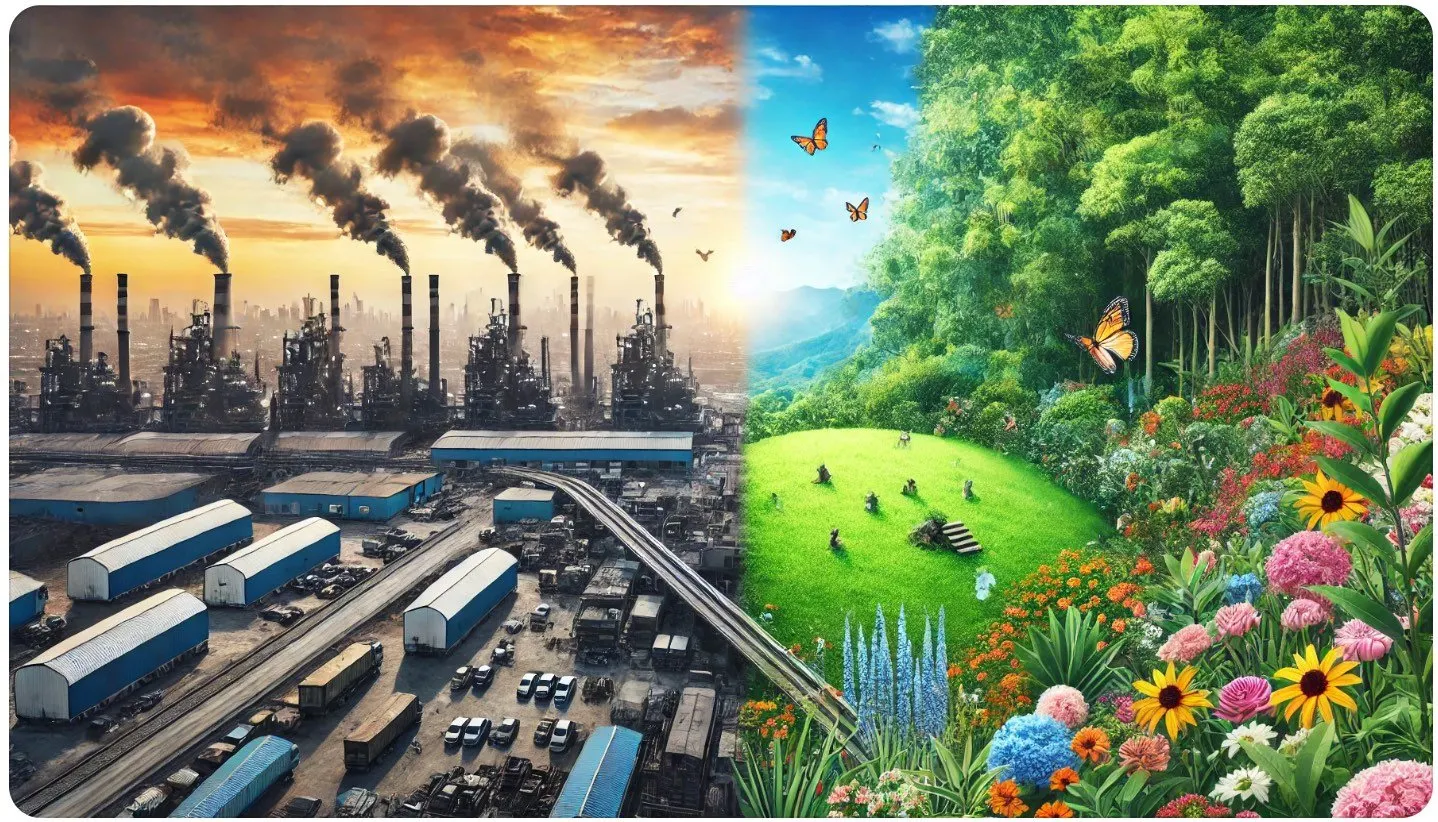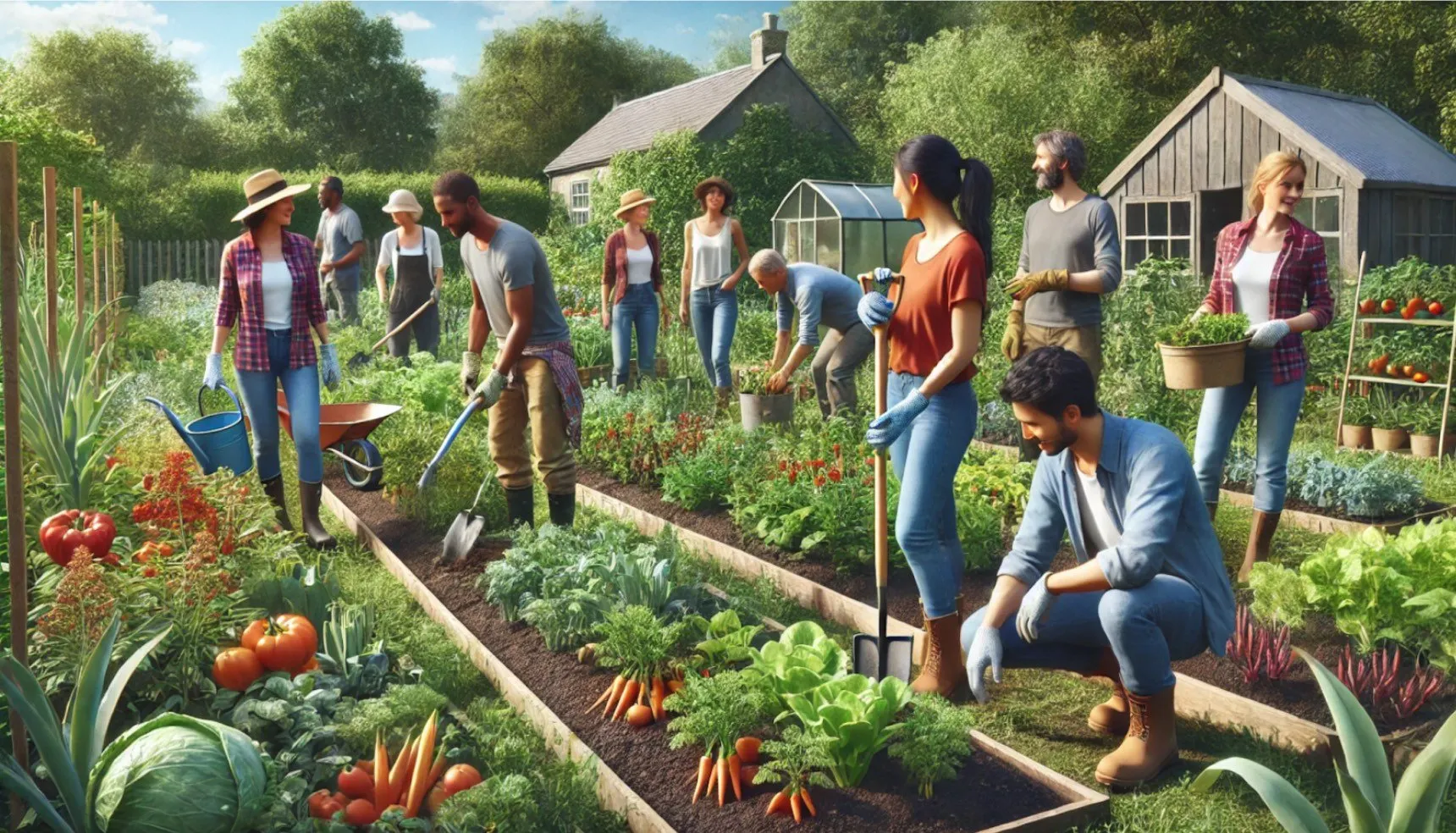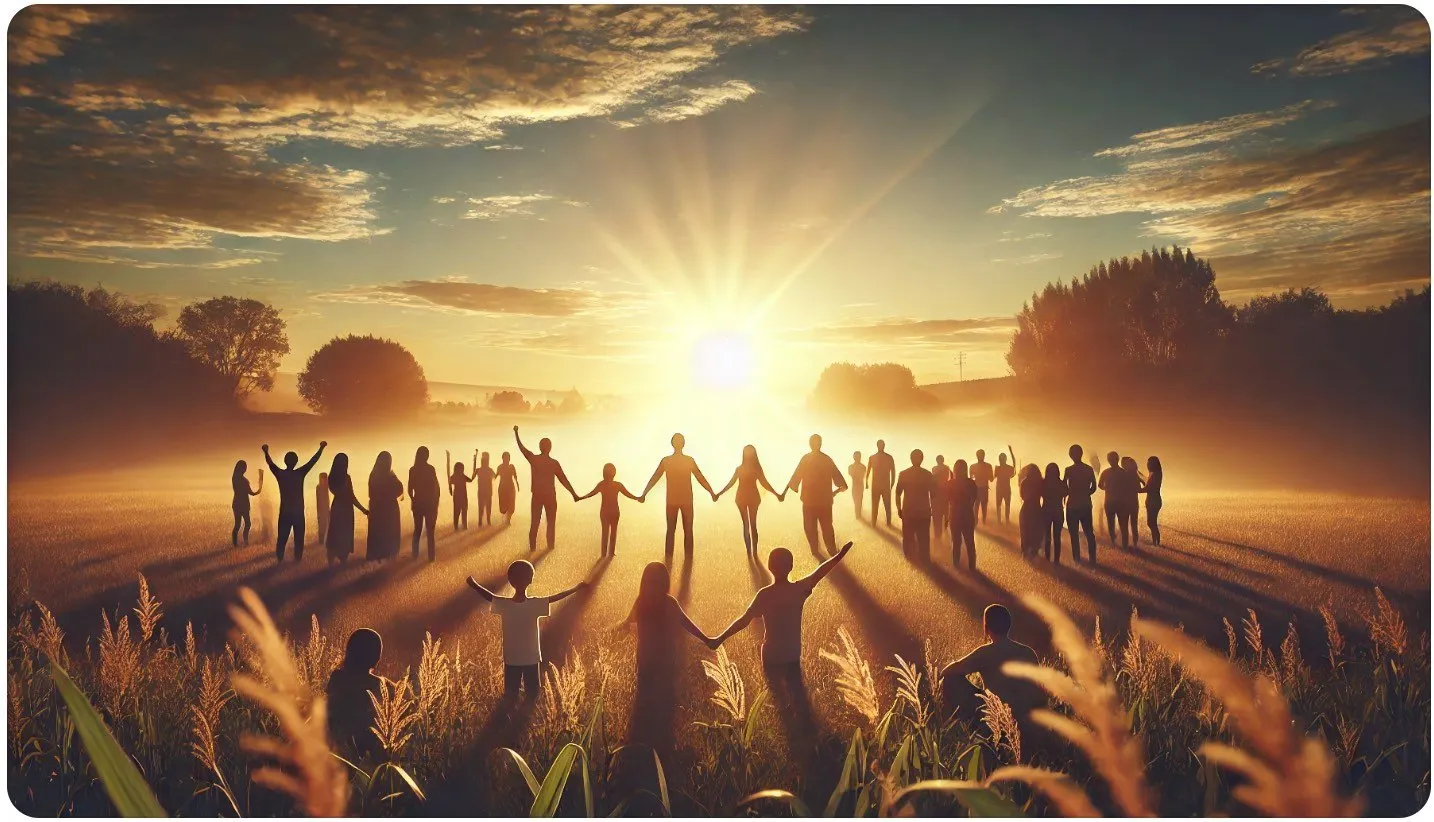Awakening to Our True Nature: A Life Beyond Competition and Scarcity
"In a world where everyone thrives, the illusion of scarcity dissolves into the reality of endless possibility."

Introduction
Imagine a world where we don't compete but live in harmony, sharing resources freely. Is it possible? This question challenges our long-held beliefs about human nature.
We often see competition as a core part of our behavior, driven by the illusion of scarcity. But as we wake up to our true nature, we see beyond these illusions. We realize that a more enlightened humanity can move past competition and live together in abundance and harmony.
The Illusion of Scarcity
How Scarcity Shapes Our Actions
Throughout history, competition has shaped our societies and economies. From tribal conflicts to corporate battles, the belief in scarcity has driven us to compete fiercely.

Recognizing Scarcity as an Illusion
This idea of scarcity makes us think there's not enough for everyone, leading to a race for resources, power, and success. But scarcity is an illusion. The natural world is abundant, providing more than enough for all. Unfortunately, our actions and beliefs have created an experience of shortage, keeping us stuck in a cycle of competition and inequality.
Areas of Competition
The Chase for Wealth and Power
The chase for wealth and influence fuels competition. Corporate and political battles show how the quest for power leads to inequality and discord. Companies try to outdo each other, often ignoring ethics and societal well-being.
Conflicts Over Natural Resources
Competing for natural resources is another way this illusion of scarcity appears. Conflicts over oil, deforestation, and water rights highlight how believing in limited resources causes strife and environmental damage. Even though our planet can sustain life abundantly, our actions have led to resource depletion and unfair distribution.

Competition in Relationships
Competition sneaks into our relationships, too. Social media makes this worse by creating a culture of constant comparison, affecting our self-worth and connections. Romantic relationships and social standings often become arenas for seeking validation and acceptance.
Spiritual Competition
Even in spirituality, competition can creep in. Some formal religions foster competition for divine favor or salvation, leading to conflicts and divisions. Ideas like 'chosen people' or exclusive paths to enlightenment create a sense of spiritual hierarchy, which contradicts the universal nature of spiritual truth.
The Awakening
Recognizing Life’s Abundance
Awakening means recognizing the abundance in life—resources, love, and spiritual connection. This helps us see that competition is unnecessary and encourages sufficiency and collaboration instead.
Embracing Sufficiency and Collaboration
Embracing sufficiency means realizing there's enough for everyone and understanding that our well-being is interconnected. In this enlightened state, we shift from lack to abundance, promoting harmony and cooperation.
Examples of How We Can Change Things

Collaboration in Action
Embracing collaboration can transform our societies. Community gardens, where neighbors work together to grow food, are a great example. Networks like the Women's Impact Network (WIN) show how collective efforts can support individual business growth, promoting shared success over personal gain.
Mindset Practices to Foster Change
Adopting practices that promote an awakened mindset can help this transformation. Mindfulness, gratitude, and selflessness are tools for cultivating a sense of abundance and interconnectedness.
- Meditation: Helps us find inner peace, reducing the need for external validation.
- Volunteering: Fosters empathy and a sense of shared purpose, reinforcing the idea that we thrive together.
Conclusion
We can move past the illusion of scarcity and competition by awakening to our true nature. Recognizing life's abundance allows us to shift from competition to collaboration, from lack to sufficiency. By embracing this enlightened state, we can create a world of harmony and cooperation.
Think about how you can embrace abundance and cooperation. Reflect on your beliefs and actions, and explore practices that foster an awakened mindset. Let's create a future where everyone thrives in the warm sunlight of cooperation and kindness.

Acknowledgment of Magazine Feature
A version of this article was originally featured in H.A.N.N.A. Magazine, a national publication that amplifies voices deserving to be Heard, Acknowledged, Noticed, and Noteworthy, and to be Amplified.
